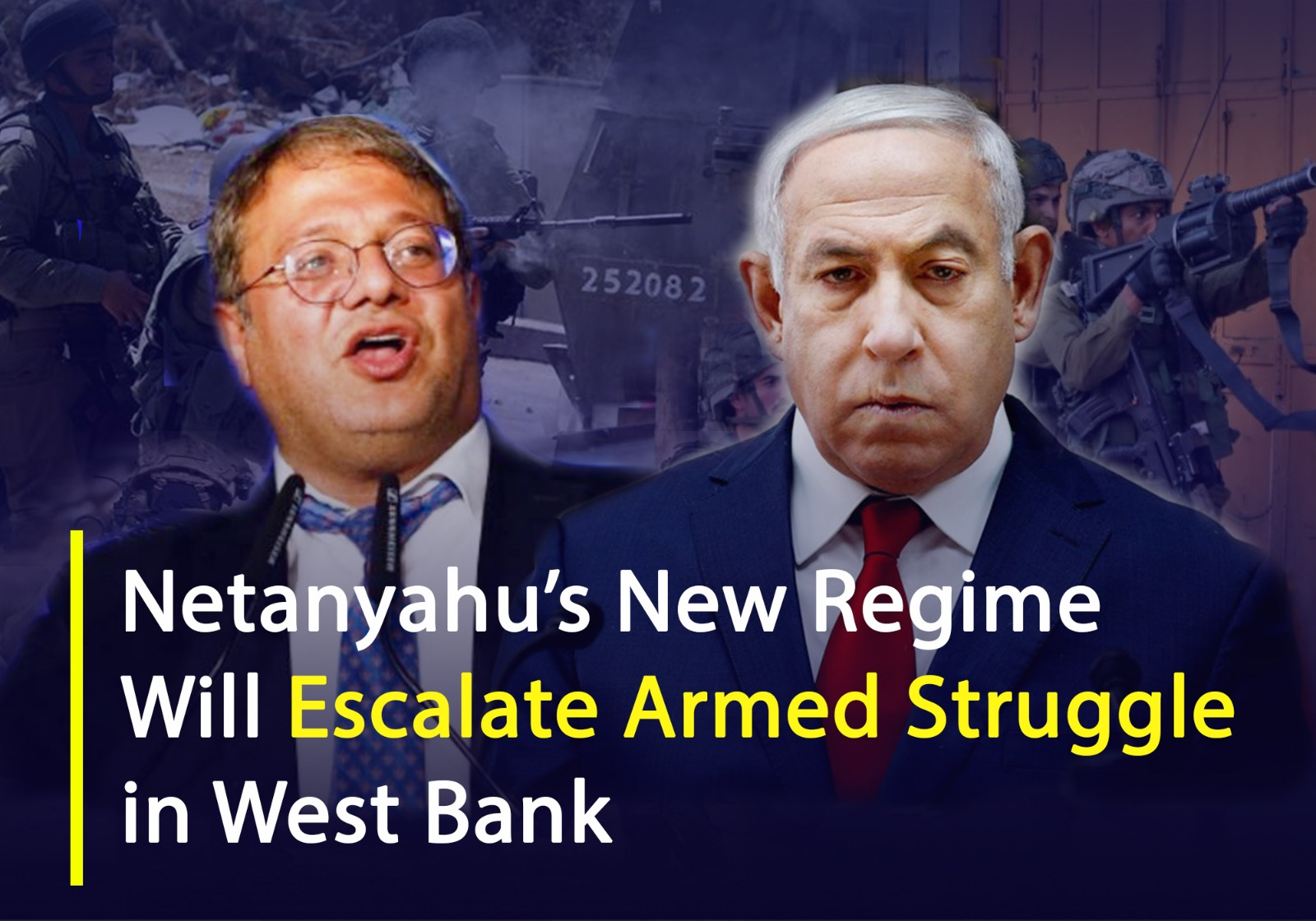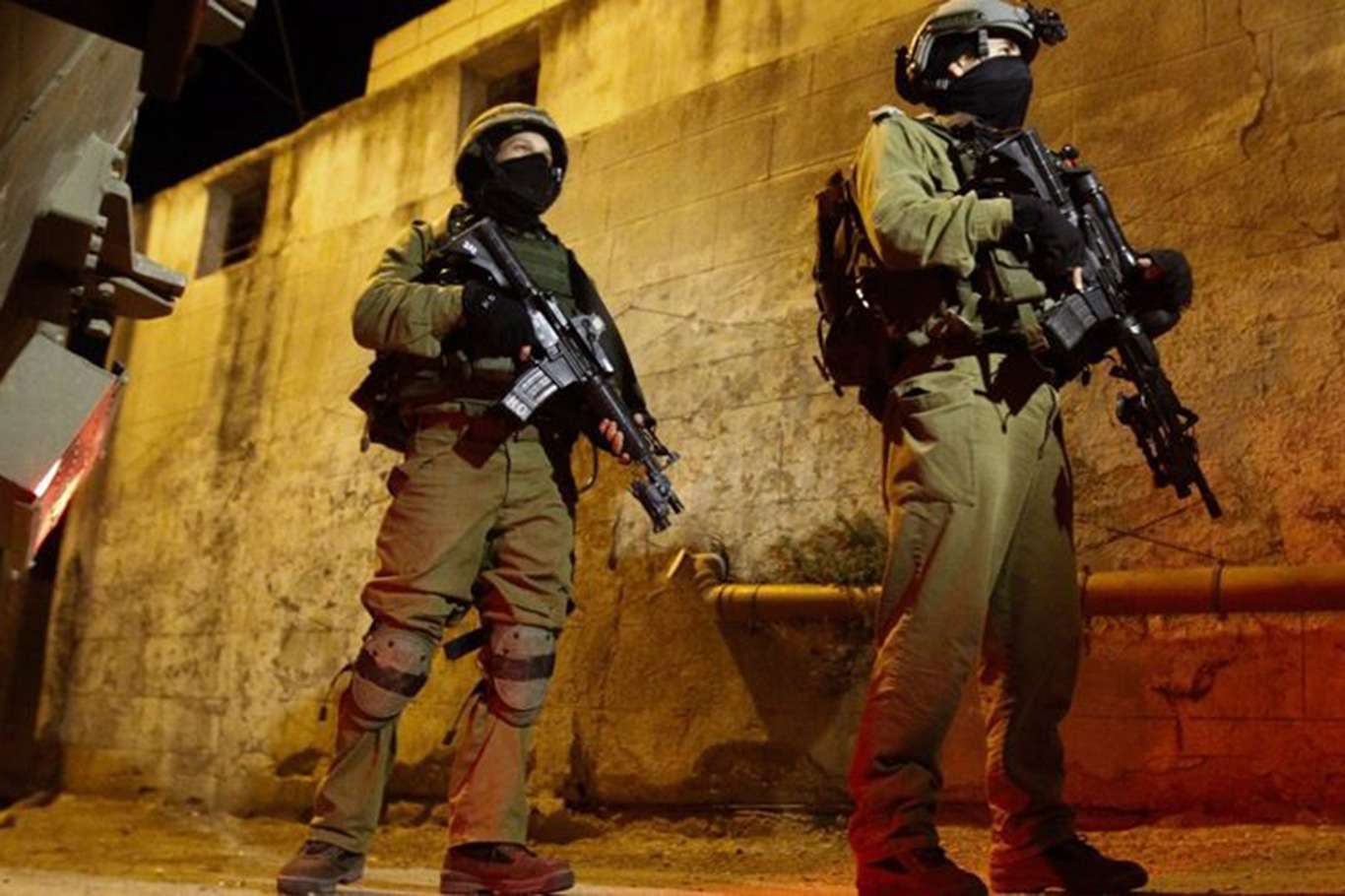By Robert Inlakesh
After reaching a deal with the extremist Religious Zionism party, Benjamin Netanyahu’s return to power is imminent and with this comes major consequences for Palestinians. However, the hardline anti-Palestinian practices that are likely afoot, will only inspire further armed struggle in the West Bank.
2022 has been the bloodiest year in the occupied West Bank since 2005, with the Palestinian death toll surpassing 160, with thousands more injured. Today’s ongoing escalation can be traced back to the Israeli military’s amendment of its Open Fire Policy, in December of 2021, allowing for even less stringent conditions under which occupation forces can murder Palestinians. Coinciding with the aggressive posturing and policy change of the former Naftali Bennett-led regime, was the formation of the Jenin Brigades in September of 2021 and the emergence of a number of other smaller armed factions in the north of the West Bank.
When Israeli occupation sent an undercover special forces unit, into the Nablus area, to carry out their first publicly announced West Bank assassination in 15 years, a new era was born in the West Bank. The broad daylight shooting, which covered an entire car with bullet-holes, killed Ashraf al-Mubaslat, Adham Mabrouka, and Muhammad al-Dakhil, all of whom were part of the unofficial Fatah-party militia called the Al-Aqsa Martyrs Brigades. On March 31, the Israeli regime announced ‘Operation Break the Wave’ to combat the growing threat of armed movements attacking military targets and settlements.
In August, after Yair Lapid had just taken over the position of Israeli Prime Minister, a three day aerial bombardment of the besieged Gaza Strip was carried out, targeting the Palestinian Islamic Jihad (PIJ) movement. An armed exchange with Gaza was seemingly connected to an Israeli attempt to seem to be combating the PIJ movement throughout occupied Palestine. Despite the success of the Israeli offensive, in the eyes of the Israeli public, Yair Lapid’s leadership got carried away and massively miscalculated, ordering the assassination of Ibrahim Nablusi in the Old City of Nablus.
Instead of working to beat down the spirits of Palestinians in the West Bank, the martyrdom of Ibrahim Nablusi only worked to create the perfect icon for a new era of Palestinian resistance fighters. Nablusi had been the key target of Israel’s February assassination, but had evaded the occupation forces and went on to embarrass them on several occasions. Fast forward to September 2, the Lions Den armed group then emerged from the Old City of Nablus, immediately carrying out successful commando operations against Israeli forces, killing a soldier.
The Religious Zionism (RZ) party, which will now represent the second most powerful force in the Israeli regime, under Benjamin Netanyahu, seeks to escalate tensions even further. Instead of analyzing the situation and coming to the understanding that working with the Palestinian Authority’s security forces, whilst dis-engaging from military confrontations, maybe the way to cooling tensions, the RZ-Likud regime seeks to use even more deadly force than the Lapid-Bennet regime that preceded it.
Itamar Ben Gvir and Bezalel Smotrich, who are the most prominent figures in RZ, both seek the dismantlement of the Palestinian Authority (PA), viewing it as a threat to their settlement project that seeks to take over the entirety of the West Bank. Whilst figures of the past Israeli regimes, like Benny Gantz and Yair Lapid, do not necessarily seek to engage in political dialogue with the PA, they nonetheless accept the necessity of ‘Security Coordination’ with the PA’s security forces. Now that Itamar Ben-Gvir has closed a deal with Benjamin Netanyahu, ensuring his emergence to the position of ‘National Security’ minister, Benny Gantz, who controls the Israeli military, has expressed his fears of the potential blowback that could come with Ben-Gvir acquiring power of the occupation forces.
Ben-Gvir and Smotrich, both call for the expulsion of Palestinian citizens of Israel who display disloyalty to Israel, along with advocating changing the status quo at the al-Aqsa Mosque compound. Both have a long history of racist rhetoric, so bad that they have managed to draw condemnation from the ultra-Zionist pro-Netanyahu AIPAC Lobby group in the United States. Religious Zionism ran on a campaign of introducing the death penalty for Palestinians, annexing key areas of the West Bank and brutally cracking down on Palestinian resistance through forms of collective punishment.
One thing that has to be noted here, is that Ben-Gvir and Smotrich are not a small fringe group in Israel, the Israeli election voter turnout was the highest in years and the Israeli public voted RZ in as the third largest party in the Knesset. This has to be pointed out in order to emphasize that they have a lot of support and hold the key to keeping Netanyahu in power, meaning that many of their wishes may well be granted. The policies of RZ will stir further tensions amongst Palestinians with Israeli citizenships, in addition to sparking chaos if the Al-Aqsa Mosque is threatened. The more violence that Israel uses against Palestinians in the West Bank, the more we will see the armed resistance movements grow and the younger generation of Palestinians are tired of living under such oppressive conditions.
About the Author

Robert Inlakesh is a political analyst, journalist, and documentary filmmaker. He has reported from and lived in the occupied Palestinian territories and has worked with Middle East Eye, RT, Mint Press, Counterpunch, MEMO, Red Fish, the New Arab, TRT, and Al-Mayadeen English.
Shortlink for this post: https://daysofpalestine.ps/?p=31117






